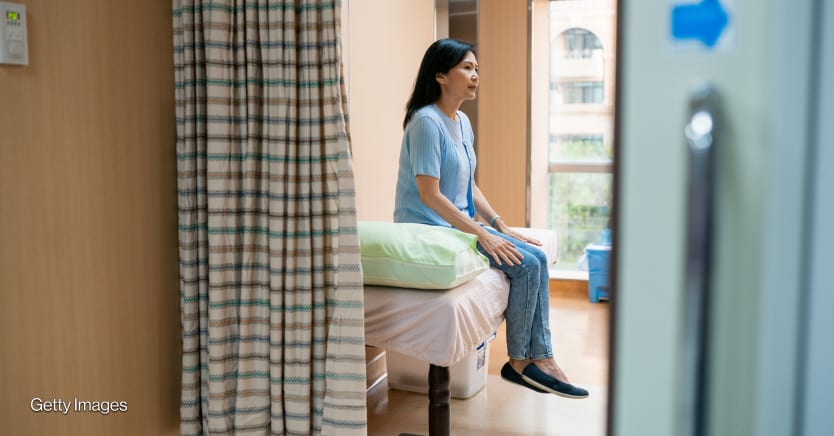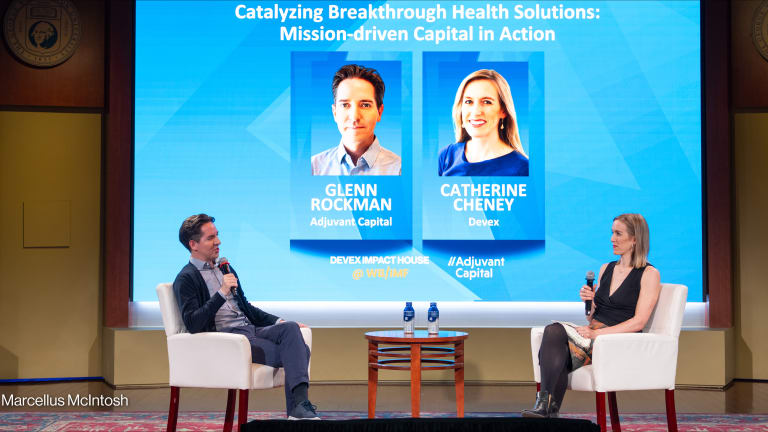
In the time it will take you to read this sentence, a woman somewhere in the world will have needed a blood transfusion because of abnormal menstruation. Before you finish this paragraph, another baby will be stillborn. And by the end of the day, countless women will have endured symptoms of conditions such as Alzheimer’s, cardiovascular disease, or autoimmune disorders — conditions that are under-researched, underdiagnosed, and undertreated. Why? Because women’s health has never been prioritized the way it should be.
I have been honored to spend my career leading extraordinary teams in the pursuit of seemingly impossible goals. As the first woman to run the U.S. Defense Advanced Research Projects Agency, or DARPA, I had the privilege of greenlighting programs that mattered in ways we could not yet fully imagine. At Google and Meta, I led teams charged with turning radical ideas into real-world capabilities. Now, as CEO of Wellcome Leap, I am privileged to be part of a global organization founded to bring that same urgency and ambition to the advancement of human health. Much of that work is focused on one of the most neglected frontiers of science: women’s health.
Chasms in our knowledge
We start from a truth that should trouble us all: Women experience health issues differently, disproportionately, and uniquely. Despite living longer, women spend 25% more of their lives in poor health. Cardiovascular disease is the leading cause of death for women worldwide, yet it is still too often thought of as a “man’s disease” — and misdiagnosed or missed in women entirely. Women account for 80% of patients with autoimmune diseases, yet treatments are rarely designed with them in mind. Two-thirds of Alzheimer’s patients in the U.S. are women, and we still cannot explain why. Every 16 seconds, a baby is stillborn, and 40% of those deaths involve problems with the placenta — an organ we know astonishingly little about, despite its central role in sustaining life.
These are not minor gaps. They are chasms in our knowledge, created and perpetuated by decades of underinvestment. Without deliberate action, the pace of progress will remain intolerably slow, and millions more women and girls will suffer needlessly.
A model for innovation
At Wellcome Leap, we aim to change that trajectory. Our mission is to deliver breakthroughs in human health not decades from now, but in years. To do it, we have adapted the DARPA model for a global, philanthropic context — an approach that begins with a bold, use-inspired, measurable goal, assembles the best minds in the world to achieve it, and drives toward the outcome with speed and urgency.
At DARPA, that model yielded advances that reshaped industries and societies. At Wellcome Leap, we are proving it can do the same for global health.
When we launched our In Utero program, for example, we set out to cut stillbirth rates in half by creating scalable ways to measure, model, and predict gestational development. Doing so could save more than a million lives every year.
Within 100 days, we had assembled a global network of scientists and clinicians. And within two years, that team had line of sight on a maternal blood test capable of predicting conditions that lead to stillbirth — such as fetal growth restriction, gestational diabetes, and pre-eclampsia — with more than 80% accuracy — as early as 12 weeks into pregnancy. We've been missing this kind of predictive power for far too long. It means that, in the near future, we can imagine giving primary care doctors and community health workers from the U.S. to Uganda the ability to identify high-risk pregnancies early, intervene appropriately, and save lives.
This is what happens when you treat women’s health as a frontier for innovation rather than an afterthought. You frame the problem differently. You build teams differently. You move ideas from theory to reality faster than conventional systems would ever allow. And you measure success not in inches, but in leaps.
Today, Wellcome Leap has invested $150 million across three major programs aimed at transforming outcomes in women’s health — and we are just getting started. That is why I am proud to announce that we are joining forces with Melinda French Gates and her team at Pivotal to commit an additional $100 million to new programs in this space, bringing our total to $250 million. The time for incrementalism is over.
Raising expectations, delivering solutions
Changing our approach to women’s health is a moral imperative. For too long, women have been told to endure what should be treatable, to normalize pain and disability that could be prevented, to accept conditions as “mysteries” rather than problems worth solving. Behind every statistic is a person whose life could be fuller, freer, and longer if only we had invested the attention and resources earlier.
And so we must. We need more breakthroughs, and we need them faster. I have seen firsthand what happens when we do invest. I have seen how ambitious, emotionally invested teams with clear goals can overcome obstacles, collapse timelines, and deliver solutions once thought impossible.
My hope is that others will join us. Reaching the scale of impact women deserve will take more of us. It will take a coalition of leaders across philanthropy, government, and the private sector, willing to commit at the level the problem demands. At Wellcome Leap, we have the model, the network, and the readiness to put new resources to work on a global scale within 100 days. And the range of problems we could potentially solve is vast.
I have seen extraordinary teams make a difference in national security, technology, and health. I have watched ideas become innovations that changed the way people live. But I believe the work we are doing now is among the most important of my life. It is a chance to correct a historic wrong, to close a gap that should never have existed, and to honor the dignity of half the world’s population by giving us the science, the medicine, and the care we deserve.
Many have raised awareness. Now we must raise expectations. So join us. Because the question is not whether we can make the next decade one of extraordinary progress in women’s health. The question is whether we will.

This content is sponsored as part of Bold Ideas — a series celebrating health breakthroughs and spotlighting the bold, grassroots solutions putting the power back in women’s hands. Click here to learn more.








